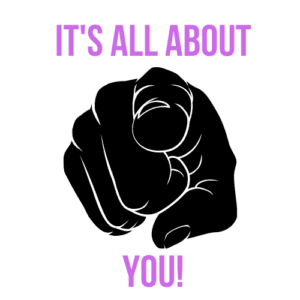Launch your Personal Brand
You’ve probably heard the term Personal Brand being thrown around with increasing frequency in the last few years – but what is it and how do you build your own?
What is it and why should I care?
A personal brand boils down to what you are known for and how you are perceived. In our highly competitive world, a personal brand helps to differentiate you from the pack and communicate your value in a more effective, concise, and consistent manner.
This differentiation and resulting visibility crucially leads to new opportunities that elevate you closer to your goals and builds trust with those around you.
Your career is your business where one of the most important roles you have is as head marketer for your brand.
What makes up a personal brand?
Personal brand should reflect YOU. You can break it down into four key components: Your strengths, unique selling point (USP), values, and vision. These are grounded by your purpose.
Let’s start identifying what makes up each of your brand components.
When I looked to build my personal brand and the HerHelloWorld platform, I went through this same exercise. To give you some ideas as you work through this, I have included my responses.
First, focus on what makes you great:
STRENGTHS
Your strengths are what you do well. Your brand is going to emphasize these strengths to others. Make your life easier by building a brand around things that you enjoy doing – you don’t want to trap yourself into building a brand around strengths that don’t spark joy. To identify your strengths, reflect on these situations:
- Things you are good at + why
- Skills you fall back onto in challenging situations
- Strengths others have recognized in you
Skills you use during successful projects
With those in mind, it’s time to select the key strengths that are going to provide you the most value. Ask yourself:
- What strengths repeat themselves?
- What strengths + skills will be most helpful to me personally, professionally, and others?
My key strengths are:
- Organization and planning
- Key-subject matter knowledge on the tech industry and building a career
- Leadership and decisiveness
- Public speaking
2.UNIQUE SELLING POINT
 Your unique selling point is a term typically used in business to describe what differentiates your product, services, and experience from your competitors. It is what you offer that people won’t get elsewhere.
Your unique selling point is a term typically used in business to describe what differentiates your product, services, and experience from your competitors. It is what you offer that people won’t get elsewhere.
In the context of a personal brand, it is what makes you as an individual different. This can present itself as having a different background, a unique perspective, an uncommon strength or skill, a rare accomplishment, an approach to solving problems, etc. Consider traits that are not commonly found in your industry.
If you feel like you don’t have anything unique to offer – remember this:
“Too many people overvalue what they are not and undervalue what they are” – Malcolm Forbes
My USPs are:
- Being a woman in tech (Unique perspective)
- Moving from the USA to the UK to study and work (Different background)
- Having strong people and professional/soft skills (Uncommon industry skill)
- Working at a big tech company (Challenging accomplishment)
Next, it’s time to consider the things that matter to you.
3.Values
Your values are what underpin who you are and what is truly important to you. For a personal brand, it is what you represent and stand for. Values evolve as we and the circumstance of our lives change. When it comes to identifying your values, often it is easier to consider different experiences that are impacted by your values.
- When are you the happiest?
- When are you the proudest?
- When are you most fulfilled?
Ask yourself why each experience was important and memorable so you can hone in on what value underpinned that feeling.
My core values are:
- Independence (in life, financially, etc)
- Community
- Altruism
- Equality
- Continuous growth
4. Vision
 Your vision is your mission or the larger goal you hope to achieve through your efforts. This is frequently the area where people need to do the most reflection. Your vision should drive the direction you take your life and career. I urge you to consider what you can do for others – it is when we give back and help others that we grow the most, find happiness, and ultimately reach our versions of success. For you personally, professionally, and those around you:
Your vision is your mission or the larger goal you hope to achieve through your efforts. This is frequently the area where people need to do the most reflection. Your vision should drive the direction you take your life and career. I urge you to consider what you can do for others – it is when we give back and help others that we grow the most, find happiness, and ultimately reach our versions of success. For you personally, professionally, and those around you:
- What can you offer to the world?
- What does a well-lived life mean to you?
- What legacy do you want to leave behind?
For me, my vision is to:
Create multi-generational change and ultimately a world designed with everyone in mind by championing for the success of underrepresented communities in high-impact, high-paying careers in tech.
Purpose
Finally, these four aspects are wrapped up into your brand’s purpose. Your purpose is what you do to reach your vision and what others receive from you. The key questions you want to answer are:
- What are you trying to achieve?
- What does success look like?
- Who is your main audience?
- What value are you providing?
My purpose is:
Educate underrepresented communities on the tech industry, career development, and actions to take to reach their version of success.
That’s it! With your brand framework now in hand, spend a bit of time polishing it and determining your initial focus.
How do I put this into action?
It’s now time to share your brand and expertise with the world. The actions you take next depend on what you are trying to achieve. Whether you are creating a new brand or living your brand more deliberately, it is best to start small and build up incrementally whilst strategically taking the industry changes into account.
To start, here are things everyone should do:

- Create a LinkedIn + populate it with at least your basic info and a bio that encapsulates the four components of your personal brand, your purpose, and the resulting impact.
- Follow + engage with people on social media platforms who can help you reach your goals, inspire and teach you, need your help, and/or share a similar personal brand.
- Network at events + connect on your platform of choice to continue building relationships and enable people to learn more about your personal brand and work.
- Share your perspectives + knowledge with those you meet to spread awareness of your personal brand and expertise.
- Become an expert in your niche to further cement your strengths and unique value you can provide others.
Once you have begun establishing yourself and your brand, take it to the next level:
- Create your own website as a hub for you and your brand
- Produce content (blogs, videos, social, etc.) to develop your thought leadership and brand reach
- Start public speaking on topics related to your strengths and USP
- Apply for awards to build visibility and credibility
- Create initiatives (internal and external to work) to make bigger impact relating to your vision
Krista Neher summarizes building a personal brand well:
“Start by knowing what you want and who you are, build credibility around it and deliver it online in a compelling way”.
Remember, your personal brand will evolve and pivot as you learn more about yourself, the relevant industry, and those you are working with.
Developing a personal brand is a worthwhile investment that is only going to be more valuable as time goes on – the best thing you can do today is get started.
 AUTHOR: Holly Boothroyd – SheCanCode Blog Squad
AUTHOR: Holly Boothroyd – SheCanCode Blog Squad
To find out more about Holly please click here.








